A constable is a person holding a particular office, most commonly in criminal law enforcement. The office of constable can vary significantly in different jurisdictions. A constable is commonly the rank of an officer within the police. Other people may be granted powers of a constable without holding this title.

The Metropolitan Police Service (MPS) is the territorial police force responsible for law enforcement and the prevention of crime in Greater London. In addition, it is responsible for some specialised matters throughout the United Kingdom, including national counter-terrorism measures and the protection of specific people, such as the monarch and other members of the royal family, members of the government, and other officials.

Law enforcement in the United Kingdom is organised separately in each of the legal systems of the United Kingdom: England and Wales, Northern Ireland and Scotland. Most law enforcement is carried out by police officers serving in regional police services within one of those jurisdictions. These regional services are complemented by UK-wide agencies, such as the National Crime Agency and the national specialist units of certain territorial police forces, such as the Specialist Operations directorate of the Metropolitan Police.
Special police usually describes a police force or unit within a police force whose duties and responsibilities are significantly different from other forces in the same country or from other police in the same force, although there is no consistent international definition. A special constable, in most cases, is not a member of a special police force (SPF); in countries in the Commonwealth of Nations and often elsewhere, a special constable is a voluntary or part-time member of a national or local police force or a person involved in law enforcement who is not a police officer but has some of the powers of a police officer.
Police ranks are a system of hierarchical relationships in police organisations. The rank system defines authority and responsibility in a police organisation, and affects the culture within the police force. Usually, uniforms denote the bearer's rank by particular insignia affixed to the uniforms.
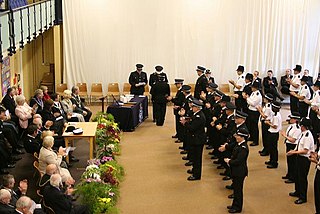
The Special Constabulary is the part-time volunteer section of statutory police forces in the United Kingdom and some Crown dependencies. Its officers are known as special constables.
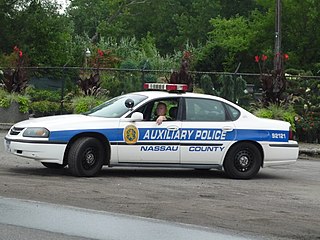
Auxiliary police, also called volunteer police, reserve police, assistant police, civil guards, or special police, are usually the part-time reserves of a regular police force. They may be unpaid volunteers or paid members of the police service with which they are affiliated.

The Hampshire and Isle of Wight Constabulary is the territorial police force responsible for policing the counties of Hampshire and the Isle of Wight in South East England.
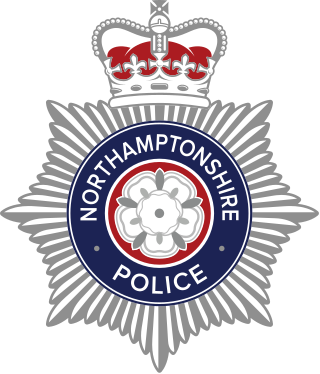
Northamptonshire Police is the territorial police force responsible for policing the county of Northamptonshire in the East Midlands of England, in the United Kingdom.
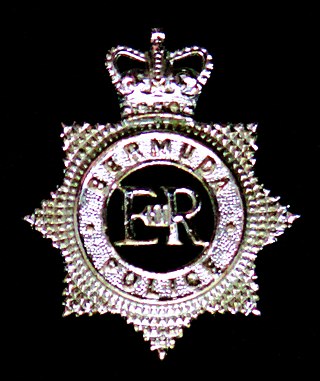
The Bermuda Police Service is the law enforcement agency of the British Overseas Territory of Bermuda. It is responsible for policing the entire archipelago, including incorporated municipalities, and the surrounding waters. It is part of, and entirely funded by, the Government of Bermuda. Like the Royal Bermuda Regiment, it is under the nominal control of the territory's Governor and Commander in Chief, although, for day-to-day purposes, control is delegated to a minister of the local government. It was created in 1879, as Bermuda's first professional police service. In organisation, operation, and dress, it was created and has developed in line with the patterns established by British police services, such as the City of Glasgow Police, and the Metropolitan Police Service.

The British Columbia Provincial Police (BCPP) was the provincial police service of British Columbia, Canada, between 1858 and 1950.
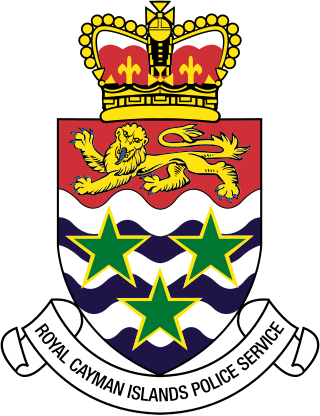
The Royal Cayman Islands Police Service (RCIPS) is the standing police force of the British Overseas Territory of the Cayman Islands. The police force was formed in 1907 and currently (2009) stands at 343 enlisted officers, tasked with tackling Crime in the Cayman Islands.
The Jamaica Constabulary Force (JCF) is the national police force of Jamaica.
Auxiliary constables or reserve constables are unpaid citizens in Canada who volunteer their time and skills to a police force. They are uniformed, unarmed members who perform a similar role to their UK counterparts in the Special Constabulary. Their main function is to supplement the police force with additional manpower, with duties varying by appointment, geographical location and the needs of the specific detachment/department.

The Royal Montserrat Police Service is the police service of the British Overseas Territory island of Montserrat in the Caribbean. The current Commissioner is Steve Foster, JP, BSc, CPA., a native and career police officer of Montserrat.
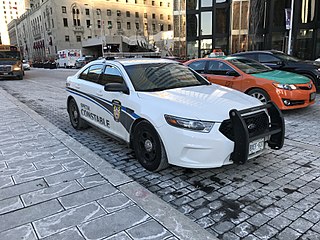
A special constable or special police constable can refer to an auxiliary or part-time law enforcement officer or a person who is granted certain (special) police powers.
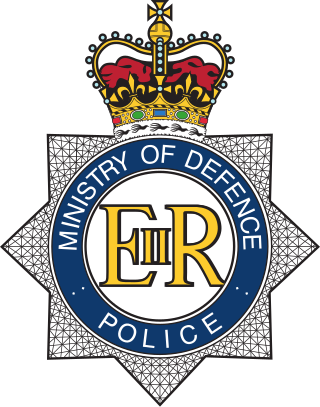
The Ministry of Defence Police (MDP) is a civilian special police force which is part of the United Kingdom's Ministry of Defence. The MDP's primary responsibilities are to provide armed security and counter terrorism services to designated high-risk areas, as well as uniformed policing and limited investigative services to Ministry of Defence property, personnel, and installations throughout the United Kingdom. The MDP are not military police and should not be confused with the Royal Military Police or any other British Service Police. Service personnel often refer to the MDP by the nickname "MOD plod".
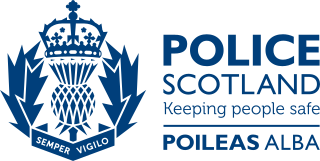
Police Scotland, officially the Police Service of Scotland, is the national police force of Scotland. It was formed in 2013, through the merging of eight regional police forces in Scotland, as well as the specialist services of the Scottish Police Services Authority, including the Scottish Crime and Drug Enforcement Agency. Although not formally absorbing it, the merger also resulted in the winding up of the Association of Chief Police Officers in Scotland.

The Royal Turks and Caicos Islands Police Force is the national police force of the Turks and Caicos Islands, a British Overseas Territory in the Lucayan Archipelago of the Atlantic Ocean and northern West Indies. It is one of the oldest police forces in the world.






























